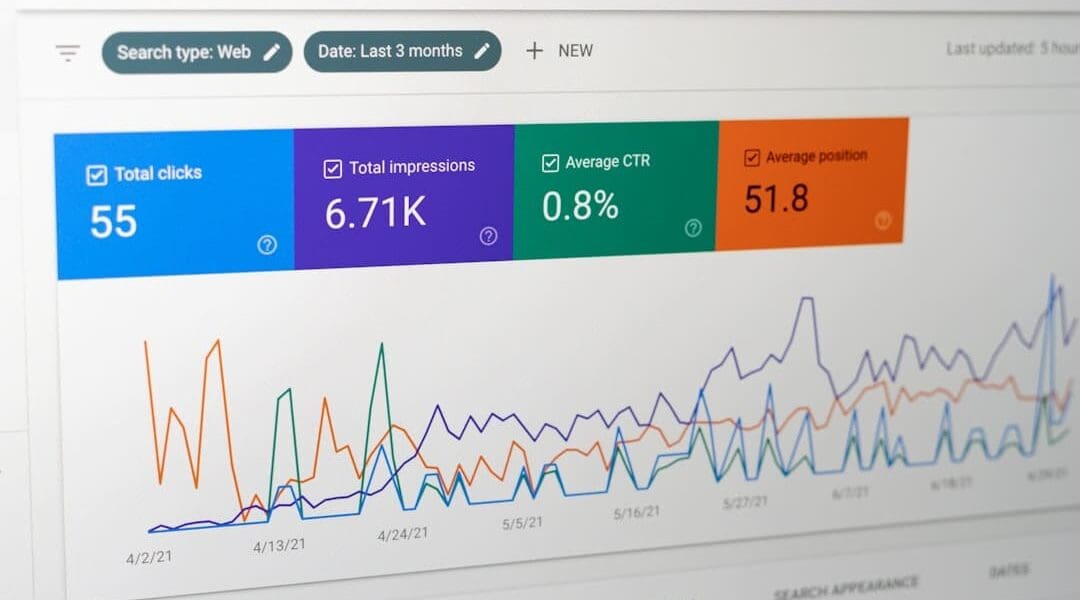Google Page Rank is a numerical value that represents the importance of a webpage on the internet. It is a system developed by Google founders Larry Page and Sergey Brin at Stanford University. The Page Rank algorithm evaluates the quantity and quality of links to a webpage to determine a rough estimate of the website’s importance. The higher the Page Rank, the more important and valuable the webpage is considered to be.
Page Rank is based on the idea that links are like votes, and a webpage’s importance can be determined by the number of votes it receives. However, not all votes are equal. A webpage’s Page Rank is also influenced by the Page Rank of the pages linking to it. This means that a webpage with a high Page Rank linking to another webpage will pass on more value than a webpage with a low Page Rank.
In addition to the quantity and quality of links, Google Page Rank also takes into account the relevance of the linking pages. This means that links from pages that are related to the content of the linked page will have more impact than links from unrelated pages. Understanding Google Page Rank is essential for anyone looking to improve their website’s visibility and ranking on search engine results pages.
Key Takeaways
- Google Page Rank is a measure of the importance of a webpage based on the number and quality of links pointing to it.
- Checking page rank for keywords is important for understanding the competitiveness and potential visibility of your website in search engine results.
- You can check Google Page Rank for keywords using online tools like Google Keyword Planner, SEMrush, and Ahrefs.
- Page Rank can be improved by creating high-quality content, building backlinks, and optimizing website structure and performance.
- Analyzing competitor page rank for keywords can provide valuable insights for refining your SEO strategy and identifying opportunities for improvement.
Importance of Checking Page Rank for Keywords
Checking the Page Rank for keywords is crucial for anyone looking to improve their website’s search engine optimization (SEO) strategy. By understanding the Page Rank of keywords, website owners and marketers can identify which keywords are most valuable and worth targeting. This allows them to focus their efforts on optimizing their website for the most important and relevant keywords, increasing their chances of ranking higher in search engine results pages.
Furthermore, checking the Page Rank for keywords can help website owners and marketers identify opportunities for improvement. By analyzing the Page Rank of keywords, they can identify which keywords are underperforming and in need of optimization. This allows them to make informed decisions about where to allocate their resources and efforts to improve their website’s visibility and ranking on search engine results pages.
In addition, checking the Page Rank for keywords can also help website owners and marketers understand the competitive landscape. By analyzing the Page Rank of keywords, they can identify which keywords are highly competitive and which ones present opportunities for ranking well with less competition. This allows them to develop a more strategic approach to their SEO efforts and focus on keywords where they have a better chance of success.
How to Check Google Page Rank for Keywords
There are several tools and methods available for checking Google Page Rank for keywords. One popular method is to use online tools such as Google Keyword Planner, SEMrush, Ahrefs, or Moz’s Keyword Explorer. These tools allow users to enter keywords and receive information about their search volume, competition, and estimated bid price. They also provide data on the Page Rank of keywords, allowing users to identify which keywords are most valuable and worth targeting.
Another method for checking Google Page Rank for keywords is to use browser extensions such as MozBar or Ahrefs SEO Toolbar. These extensions allow users to see the Page Rank of keywords directly in their browser as they navigate through search engine results pages. This can be a convenient way to quickly assess the competitiveness and value of keywords while conducting keyword research or analyzing search engine results.
In addition to using online tools and browser extensions, website owners and marketers can also manually check Google Page Rank for keywords by conducting searches on Google and analyzing the search engine results pages. By observing which websites rank highly for specific keywords, they can gain insights into the competitiveness and value of those keywords. This can help them make informed decisions about which keywords to target and how to optimize their website for better visibility and ranking.
Using Page Rank to Improve SEO
| Page Rank | SEO Improvement |
|---|---|
| High Page Rank | Increased visibility in search results |
| Low Page Rank | Decreased visibility in search results |
| Page Rank Algorithm | Complex algorithm used by search engines to rank web pages |
Google Page Rank can be used as a valuable tool for improving SEO efforts. By understanding the Page Rank of keywords, website owners and marketers can identify which keywords are most valuable and worth targeting. This allows them to focus their efforts on optimizing their website for the most important and relevant keywords, increasing their chances of ranking higher in search engine results pages.
Furthermore, using Page Rank to improve SEO involves analyzing the competitiveness of keywords and identifying opportunities for improvement. By analyzing the Page Rank of keywords, website owners and marketers can identify which keywords are underperforming and in need of optimization. This allows them to make informed decisions about where to allocate their resources and efforts to improve their website’s visibility and ranking on search engine results pages.
In addition, using Page Rank to improve SEO also involves understanding the competitive landscape. By analyzing the Page Rank of keywords, website owners and marketers can identify which keywords are highly competitive and which ones present opportunities for ranking well with less competition. This allows them to develop a more strategic approach to their SEO efforts and focus on keywords where they have a better chance of success.
Analyzing Competitor Page Rank for Keywords
Analyzing competitor Page Rank for keywords is an important aspect of developing a successful SEO strategy. By understanding the Page Rank of competitors’ websites for specific keywords, website owners and marketers can gain insights into the competitive landscape and identify opportunities for improvement. This allows them to develop a more strategic approach to their SEO efforts and focus on keywords where they have a better chance of success.
Furthermore, analyzing competitor Page Rank for keywords can help website owners and marketers identify which keywords are most valuable and worth targeting. By analyzing the Page Rank of competitors’ websites for specific keywords, they can identify which keywords are driving traffic and conversions for their competitors. This allows them to focus their efforts on optimizing their website for the most important and relevant keywords, increasing their chances of ranking higher in search engine results pages.
In addition, analyzing competitor Page Rank for keywords can also help website owners and marketers understand the competitive landscape. By analyzing the Page Rank of competitors’ websites for specific keywords, they can identify which keywords are highly competitive and which ones present opportunities for ranking well with less competition. This allows them to develop a more strategic approach to their SEO efforts and focus on keywords where they have a better chance of success.
Implementing Strategies to Boost Page Rank for Keywords

Once website owners and marketers have analyzed the Page Rank of keywords and identified opportunities for improvement, they can implement strategies to boost the Page Rank for those keywords. One effective strategy is to create high-quality, relevant content that targets specific keywords. By creating content that is optimized for specific keywords, website owners can increase their chances of ranking well in search engine results pages.
Another strategy for boosting Page Rank for keywords is to build high-quality backlinks from reputable websites. Backlinks from authoritative websites can pass on value and authority to a webpage, increasing its Page Rank. Website owners can reach out to relevant websites in their industry and request backlinks or create valuable content that naturally attracts backlinks from other websites.
In addition, website owners can also optimize their website’s on-page elements such as title tags, meta descriptions, headers, and image alt text to include targeted keywords. By optimizing these elements, they can signal to search engines that their website is relevant for specific keywords, increasing their chances of ranking well in search engine results pages.
Monitoring and Adjusting Page Rank for Keywords
After implementing strategies to boost the Page Rank for keywords, it is important for website owners and marketers to monitor the results and make adjustments as needed. This involves regularly checking the Page Rank of keywords using tools such as Google Keyword Planner, SEMrush, Ahrefs, or Moz’s Keyword Explorer. By monitoring the Page Rank of keywords, website owners can track their progress and identify which strategies are working well and which ones need adjustment.
In addition to monitoring the Page Rank of keywords, website owners should also track their website’s performance in search engine results pages for targeted keywords. By analyzing their website’s ranking position, click-through rate, and conversion rate for specific keywords, they can gain insights into the effectiveness of their SEO efforts and make adjustments as needed.
Furthermore, website owners should stay informed about changes in search engine algorithms and industry best practices for SEO. By staying up-to-date with the latest developments in SEO, they can adjust their strategies accordingly and ensure that they are following best practices for improving their website’s visibility and ranking on search engine results pages.
In conclusion, understanding Google Page Rank is essential for anyone looking to improve their website’s visibility and ranking on search engine results pages. Checking the Page Rank for keywords is crucial for identifying valuable opportunities for improvement and developing a strategic approach to SEO efforts. By implementing strategies to boost Page Rank for keywords and monitoring the results, website owners and marketers can improve their chances of ranking well in search engine results pages and driving valuable traffic to their website.
FAQs
What is Google PageRank?
Google PageRank is an algorithm used by Google Search to rank websites in their search engine results. It was named after Larry Page, one of the co-founders of Google.
What are keywords?
Keywords are specific words or phrases that describe the content of a web page. They are used by search engines to match a user’s search query with relevant web pages.
How can I check Google PageRank for keywords?
You can check Google PageRank for keywords by using online tools or browser extensions specifically designed for this purpose. These tools allow you to enter the keywords and the URL of the web page, and they will provide you with the PageRank for those keywords.
Why is it important to check Google PageRank for keywords?
Checking Google PageRank for keywords can help you understand how well your website is ranking for specific search terms. This information can be used to optimize your website’s content and improve its visibility in search engine results.
What factors affect Google PageRank for keywords?
Google PageRank for keywords is affected by various factors, including the relevance of the content to the keywords, the quality and quantity of backlinks to the web page, and the overall authority of the website.












